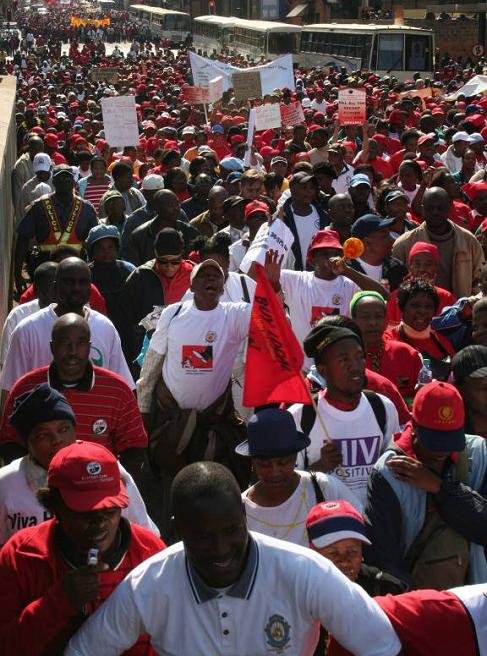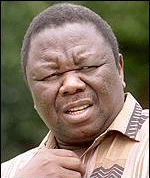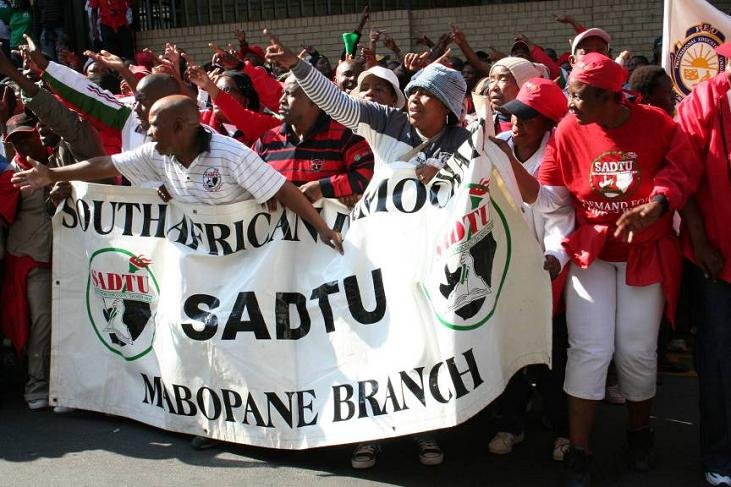
Peace and Tranquility???
 Peace and Tranquility??? |
Cell in RSA: 0791463039

Chat about what's on your mind. More about public chats.
|

Powered byIP2Location.com
| Click here to unsubscribe | Privacy Policy | Terms of Use |
© 2006 eMusic.com, Inc. All rights reserved. iPod® is a registered trademark of Apple Computer, Inc. Apple is not a partner or sponsor of eMusic.com, Inc. |
|
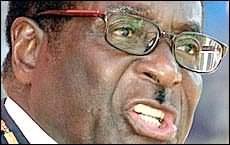

 Peace and Tranquility??? |

 Peace and Tranquility??? |


• Mutambara: Clumsy Zanu PF propaganda on farms • Zimbabwe fast-tracks surveyor training • Gasela: Gumbo must tell the truth on food situation • Gugulethu Moyo: doing justice to farming • Zimbabwe beef shortages: a man-made crisis • Top civil servant fired over fertiliser scandal • Tsvangirai on Zim food crisis • Zim offers compensation to white farmers • Mugabe issues new farmers 99-year leases • Use it or lose it, Mugabe warns farmers on land • Renson Gasela: Zimbabwe must act now on food situation |


| "SA mediators should dissuade Zanu PF and the MDC from their polarising politics of asserting each other's alleged illegitimacy as either violent puppets masquerading as democrats or violent electoral thieves masquerading as nationalist revolutionaries" |
| PROF JONATHAN MOYO |

 Peace and Tranquility??? |

| By Our Correspondent BUHERA, June 12, 2007 - Seven uniformed army officials stormed the rural home of a senior army officer here and threatened to kill his father and other family members if they did not disclose his whereabouts. Colonel Ben Ncube is accused, along with three other senior army officials, of being the masterminds of an attempted coup against President Mugabe on Sunday last week. "It was at around 10.45 pm," a family member said, "when a man dressed in army uniformed knocked on the door and asked if this was the Ncube family. When my sister confirmed that it was he went to a car that was parked outside. He came back accompanied by six other men who were also dressed in military uniform. "They asked my father several questions about Ben and his family. They threatened to kill him and everyone else around if he insisted that Ben was in Harare . "They asked if Ben had informed the family of any intention to travel abroad over the past few months. In fact, they said they knew that Ben had wanted to leave the country. They said they wanted to know where he had gone to." The family member and a high-ranking army official, who spoke on condition his name was not published, expressed genuine fear of possible victimization, including torture or killing of members of Col Ncube's family. "If they are now visiting his village the next possible move is that they will abduct, torture or kill his closest relatives," said the officer, "Their focal aim will be to force the family to disclose details of his whereabouts." President Robert Mugabe is said to have survived an assassination plot afterjunior and middle ranking officers led by three senior officers attempted to attackhis two residences in Harare. The deputy commander of the Air Force of Zimbabwe, Air Vice Marshal Elson Moyo and Major General Engelbert Rugeje, the Quartermaster Generalat Army Headquarters were arrested after being implicated in the attempted coupand assassination plot. The whereabouts of Ncube remain unknown. It has been suggested that he may have crossed the border into Botwsana early last week en route to the United States, where some members of the Ncube family are said to be based. |
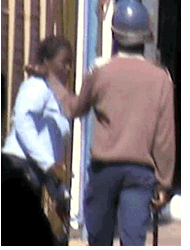 Zimbabwe's security forces – police, army and militia - are rather fond of raising their fists to settle disputes and differences of opinion. So, predictably, injuries were the order of the day when the riot police descended upon the WOZA/MOZA members who peacefully marched through Bulawayo on June 06. The marchers were determined to insert their grassroots voices into the current SADC efforts to mediate in Zimbabwe's crisis.
Zimbabwe's security forces – police, army and militia - are rather fond of raising their fists to settle disputes and differences of opinion. So, predictably, injuries were the order of the day when the riot police descended upon the WOZA/MOZA members who peacefully marched through Bulawayo on June 06. The marchers were determined to insert their grassroots voices into the current SADC efforts to mediate in Zimbabwe's crisis.
 Peace and Tranquility??? |


 Peace and Tranquility??? |

| Soldiers arrested over alleged assassination plot on Mugabe LINK!!!! |
| By Our Correspondent HARARE, June 8, 2007 - President Robert Mugabe is said to have survived an assassination plot on Sunday night after mainly junior and middle ranking officers led by three senior officers tried to bomb his two residences in Harare. Impeccable sources told The Zimbabwe Times that following the plot, believed to have been part of a coup attempt, all soldiers have been placed on high alert. All members of the Presidential Guard have been told that they would now keep their guns instead of surrendering them at the armoury as is the practice at the end of their shifts. The deputy commander of the Air Force of Zimbabwe, Air Vice Marshal Elson Moyo and Major General Engelbert Rugeje, the Quartermaster General at Army Headquarters, are said to have been detained after being implicated in the attempted coup and assassination plot. Moyo and Rugeje were arrested on Wednesday afternoon. Another senior army officer, Colonel Ben Ncube has also been fingered in the attempted palace coup against Mugabe ; his whereabouts could not be established yesterday An impeccable source, who is a colonel in the Zimbabwe National Army, told The Zimbabwe Times that 360 junior soldiers had also been arrested as investigations spread. "An assortment of small weapons went missing at KG VI amoury, Two Brigade and Inkomo Barracks and inquiries appear to link the disappearance of the weapons to the failed coup." The planned coup coincided with a power blackout which plunged the entire capital in darkness. The coup was foiled when alert soldiers spotted two military planes re-fuelling at Manyame Air Base. Further inquiries by the soldiers established that the two planes were carrying heavy bombs, resulting in the immediate arrest of the two pilots. The Zimbabwe Times is reliably informed that one of the planes was supposed to drop its lethal cargo at Zimbabwe House - Mugabe's official residence - while another was supposed to pulverize his private residence in the plush suburb of Borrowdale Brook. Mugabe, who was supposed to officiate at a pass out parade of junior officers today, will now be represented by defence minister, Sydney Sekeramai. The majority of the arrested junior soldiers were taken from the Paratroopers Regiment at Inkomo, a unit formerly headed by Rugeje. Sekeramai refused to comment. However, on Monday afternoon, a large number of soldiers were secretly taken for an Army Court Marshal by heavily armed Commandos and military police officers. |


| Powered By widgetmate.com | Sponsored By Apply for Credit Cards |
